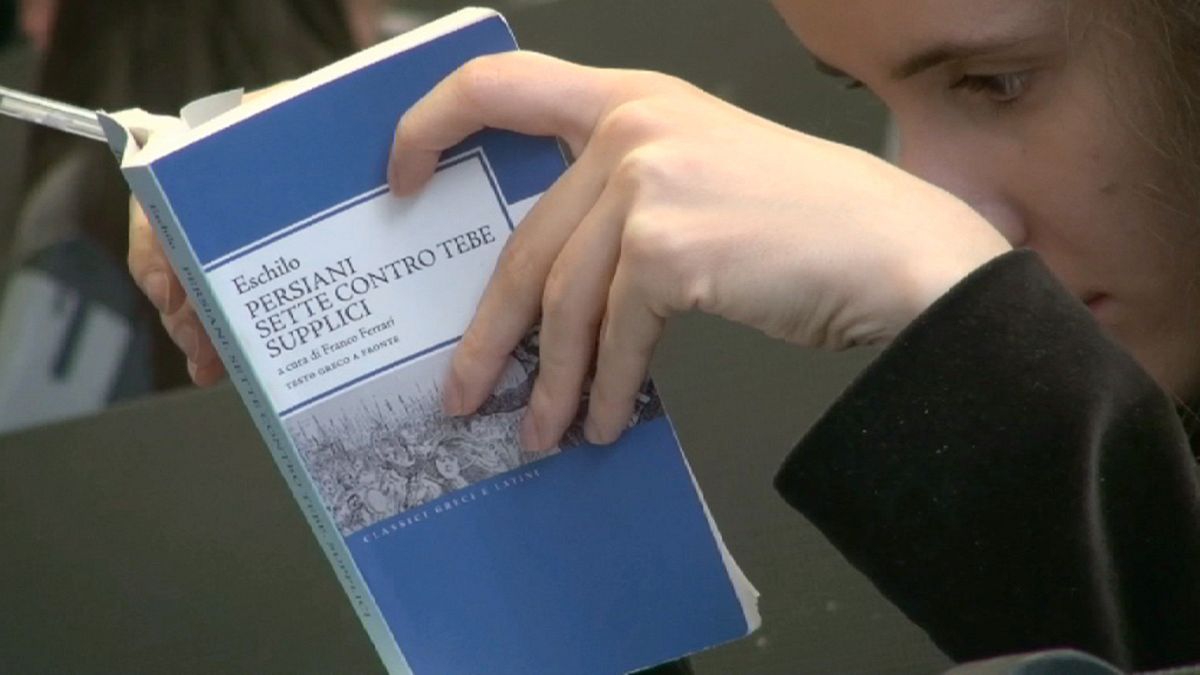Students are increasingly choosing vocational degree subjects in an effort to improve their chances of finding a good job. But are they right? Is a degree in classics really so outdated?
Italian journalist Giovanna Chirri speaks such fluent Latin that she was the only one who understood Pope Benedict’s resignation speech without waiting for a translation. So she was able to break the story before everyone else.
Italy: Lost in translation
The Italian Ministry of Education organises a Latin translation competition every year in Turin. This year around 80 students competed for the top prize of 600 euros. The competition standards are high, but most of the entrants say they will be studying sciences rather than classics at university.
Soaring unemployment means that many people in Italy are starting to see studying the classics as a luxury that will not help them when it comes to job-hunting. According to Eurostat, the number of humanities students has halved, falling from nearly 41,000 graduates in 2005 to just over 22,000 in 2010.
Greece: Identity Card
Georgios Babiniotis is a Greek linguist, a former Minister of Education and the author of a Dictionary of Modern Greek, so naturally he has some interesting opinions on teaching classics.
He told euronews: “Students choose not to study the classics because they fear not finding a job at the end. But in the UK, there is a proposal from the minister of education that ancient Greek and Latin should be offered in primary schools.”
Babiniotis thinks that modern media forms such as theatre, comics and television could be used to interest people in studying and discovering the ancient world: “Familiarity with classical languages, classical literature, with the humanities, links directly to the field of sciences, economics, technology. All those areas require people who are cultured and can think critically.”
UK: Oedipus in London
At King’s College in London students recently put on a production of ‘Oedipus at Colonus’ by Sophocles. Some of them have been studying ancient Greek for several years, others are just passionate about drama and languages. The big challenge is that they are acting in ancient Greek, using the original text.
‘Oedipus at Colonus’ was the last of Sophocles’ three Theban plays. It describes the tragic death of Oedipus. There is less action in this play than in the others but more philosophical discussion.
